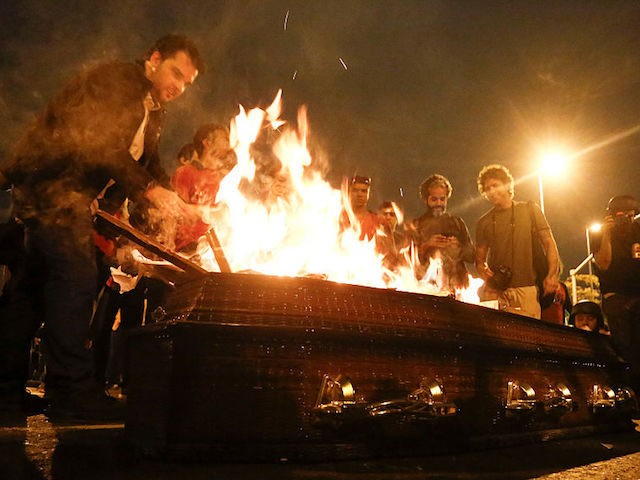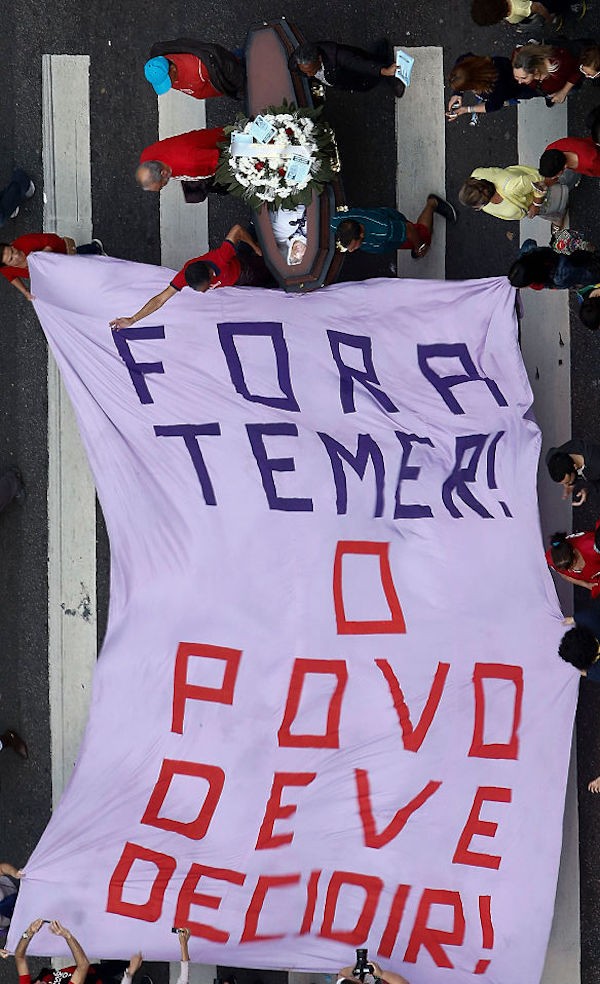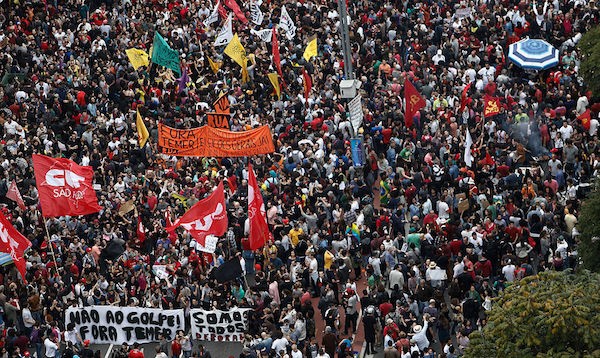President Michel Temer, currently in China for the G-20 summit, has dismissed protests across Brazil demanding he step down as “minimal” and “natural” following the process that successfully removed his socialist predecessor, Dilma Rousseff, from power.
“They are small groups, it appears that the groups are minimal, right?” Temer told reporters in Hangzou, the G20 summit’s host city. “There are 40, 50, 100 people, nothing more than than,” the Brazilian newspaper O Globo quotes Temer as stating. “In relation to 204 million Brazilians, this is not expressive of anything.”
O Globo estimates about 100,000 protesters took to the streets of Rio de Janeiro, Sao Paulo, and other major cities during the weekend. While the number is significant, it pales in comparison to the 3.6 million who protested to demand Rousseff’s ouster in March.
Temer did note that he was concerned that the protests, which have been led by violent leftist agitators since last week, may trigger more violence in the nation’s largest cities. “What can be a concern, is that the right to protest will be confused with the right to pillage,” he told reporters.
Temer quickly returned to his previous, more accepting attitude regarding the protests. “It is more than natural in the face of the politically complicated moment,” he said, adding, “It is natural that at this time there is no support [for the new government].” While Temer has been acting president for most of the year, he officially became the nation’s head of state last week, when the Brazilian Senate approved the impeachment of Rousseff over fiscal improprieties that severely damaged Brazil’s global economic profile.
O Globo notes that Foreign Minister Jose Serra went a step further than Temer, calling the protests “mini mini mini mini mini mini.”
Not all of the new government appears to agree with Temer that the current protests are “minimal.” Finance Minister Henrique Meirelles admitted in China, “100,000 is a substantial number of people,” though he noted again the small size of the protests for Rousseff’s return compared to those calling for her removal. Meirelles, nonetheless, appeared optimistic, citing the “very strong external confidence in Brazil” despite the mood among Brazilians themselves.
The largest protests following Rousseff’s impeachment last week occurred on Sunday, when protesters dragged a coffin carrying an effigy of Temer down the Avenida Paulista, Sao Paulo’s largest avenue, and later burned the coffin.
Police in Sao Paulo were forced to use what O Globo describes as “hand grenades” full of tear gas to dispel the protest after the time allotted in the protest permit elapsed. The newspaper states that police also threw bombs “inside bars” where protesters had congregated and shut down the city’s subway system to keep criminals from fleeing. Protesters threw bottles, rocks, and other projectiles at the police.
The newspaper notes that the protesters were not alone: members of the socialist Workers’ Party (PT), Rousseff’s party, joined the protesters, including at least two members of Congress.
At least nine people were arrested in Sao Paulo, according to the agitator groups.
In Rio de Janeiro, leftist protesters attacked both police and media. One protester attacked a car bearing the logo of the newspaper Estado de Sao Paulo, shouting, “Fascist!” and “Putschist press!” at the passengers. The attack recalled the vandalism of the headquarters of the Folha de Sao Paulo last week.



COMMENTS
Please let us know if you're having issues with commenting.